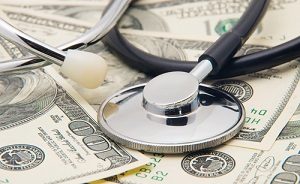Top Ten Healthcare Fraud Recoveries of 2019

Consistent with the trend in prior years, the bulk of the Justice Department’s fraud and false claims recoveries in 2019 stemmed from healthcare fraud matters. And again, most of the funds recovered arose from cases originated by whistleblowers under the qui tam provisions of the False Claims Act. Not surprisingly, seven of the top ten spots in our list involved false claims act lawsuits against drug companies or pharmacies, reflecting the deeply entrenched nature of fraud in the pharmaceutical industry. Here are the top ten healthcare recoveries of 2019 by the numbers:
-
- Reckitt Benckiser – In July 2019, DOJ, the Federal Trade Commission, and three states (VA, NY, PA) announced a $1.4 billion global settlement of criminal, civil, and administrative claims against Reckitt Benckiser Group PLC and its former subsidiary Indivior Inc. regarding allegations that the defendants engaged in deceptive marketing of Suboxone, a drug used to treat opioid addiction, as well as unfair competition. The settlement resolved six lawsuits filed by whistleblowers under the False Claims Act.
- Illinois Average Wholesale Price (AWP) Litigation – In October 2019, the State of Illinois continued its string of successes against pharmaceutical companies for inflated pricing of prescription drugs paid for by the Illinois Medicaid program, reaching a $242 million settlement with more than a dozen drug companies, including Abbott Labs, Aventis, Forest Labs, GSK, Johnson & Johnson, Novartis, Pfizer, and others, for allegedly inflating the “average wholesale price” (AWP) for their drugs. In total, Illinois has settled false AWP claims against more than four dozen manufacturers, recovering $678 million in total.
- Walgreens – In January 2019, Walgreens Boots Alliance, Inc. (“Walgreens”), a national pharmacy chain, agreed to pay $269 million to settle allegations in two False Claims Act lawsuits brought by whistleblowers. In the first matter, Walgreens admitted improperly billing federal healthcare programs for hundreds of thousands of insulin pens it dispensed to program beneficiaries who did not need them. In the second matter, Walgreens admitted overbilling Medicaid by failing to disclose to and charge the lower drug prices that it offered the public through a discount program.
- Pharmacy Assistance Program (PAP) Litigation – Between April and October 2019, the U.S. Attorney’s Office for the District of Massachusetts announced a series of False Claims Act settlements totaling $253 million with eight drug companies and two charitable foundations, Chronic Disease Fund, Inc. (CDF) and the Patient Access Network Foundation (PANF), based on allegations that the drug companies conspired to increase sales of their drugs by ensuring that donations they made to CDF and PANF would be used to cover co-payments for the donor’s drugs, thereby inducing patients to use the drugs, which were paid for by government programs. The government alleged that this charitable co-payment donation scheme violated the Anti-Kickback Statute. Astellas paid the largest settlement ($100 million), followed by Jazz Pharmaceuticals ($57 million), Lundbeck ($52.6 million), Amgen ($24.75 million), and Alexion ($13 million). Also tagged in this scheme were Novartis, Dendreon, Onyx, Questcor, and Bayer.
- Insys Therapeutics – In June 2019, opioid manufacturer Insys Therapeutics agreed to pay $225 million to resolve federal criminal and civil claims against it regarding the unlawful marketing of its drug Subsys, including the payment of kickbacks to physicians and their family members and friends. $195 million of the settlement will be paid to resolve False Claims Act allegations in five separate whistleblower lawsuits. In May 2019, five former Insys executives were convicted of racketeering in connection with Subsys marketing and are now being sentenced.
- Avanir – In September 2019, pharmaceutical manufacturer Avanir Pharmaceuticals agreed to pay approximately $116 million to resolve civil and criminal charges related to its off-label marketing of Nuedextra, including as an alternative to anti-psychotics for dementia patients, and payment of kickbacks to prescribers and others. The matter was initiated by three former Avanir employee whistleblowers.
- Inform Diagnostics – In January 2019, Inform Diagnostics, a pathology laboratory formerly known as Miraca Life Sciences, Inc., agreed to pay $63.5 million to resolve allegations brought by whistleblowers that it violated the False Claims Act, Anti-Kickback Statute and Stark Law by providing free or discounted consulting services and electronic health records systems to referring physicians.
- Lupin – In November 2019, pharmaceutical manufacturer Lupin Limited and related entities, as well as company executives, agreed to pay $63 million to resolve claims brought by a whistleblower under the Texas Medicaid Fraud Prevention Act that Lupin reported inflated drug prices to the state’s Medicaid program in order to receive excess reimbursements
- Greenway Health – In February 2019, Greenway Health LLC, an electronic health records vendor, agreed to pay $57.25 million to settle a False Claims Act case brought by the U.S. alleging that Greenway fraudulently obtained certification that its product, Prime Suite, complied with HHS requirements. The U.S. also alleged that Greenway violated the Anti-Kickback Statute by providing incentives including payments to clients to recommend Prime Suite.
- Encompass Health – In June 2019, Encompass Health Corporation (formerly known as HealthSouth Corporation), the nation’s largest operator of inpatient rehabilitation facilities (IRFs), agreed to pay $48 million to resolve False Claims Act allegations in three separate whistleblower complaints that some of its IRFs provided inaccurate information to Medicare to maintain their status as an IRF and to earn a higher rate of reimbursement, and that some admissions to its IRFs were not medically necessary.
READ MORE:
- Healthcare and Pharmaceutical Fraud
- Hospital Fraud
- Anti-Kickback Statute and Stark Law
- Fraud Related to Electronic Health Records
- Medically Unnecessary Services
- Provider Fraud
- Laboratory Fraud
- See all of our Top Ten Lists
- The Constantine Cannon Whistleblower Lawyer Team
Tagged in: Anti-Kickback and Stark, Electronic Health Records, Healthcare Fraud, Hospital Fraud, Medicaid, Medicare, Pharma Fraud, Provider Fraud, Top 10,